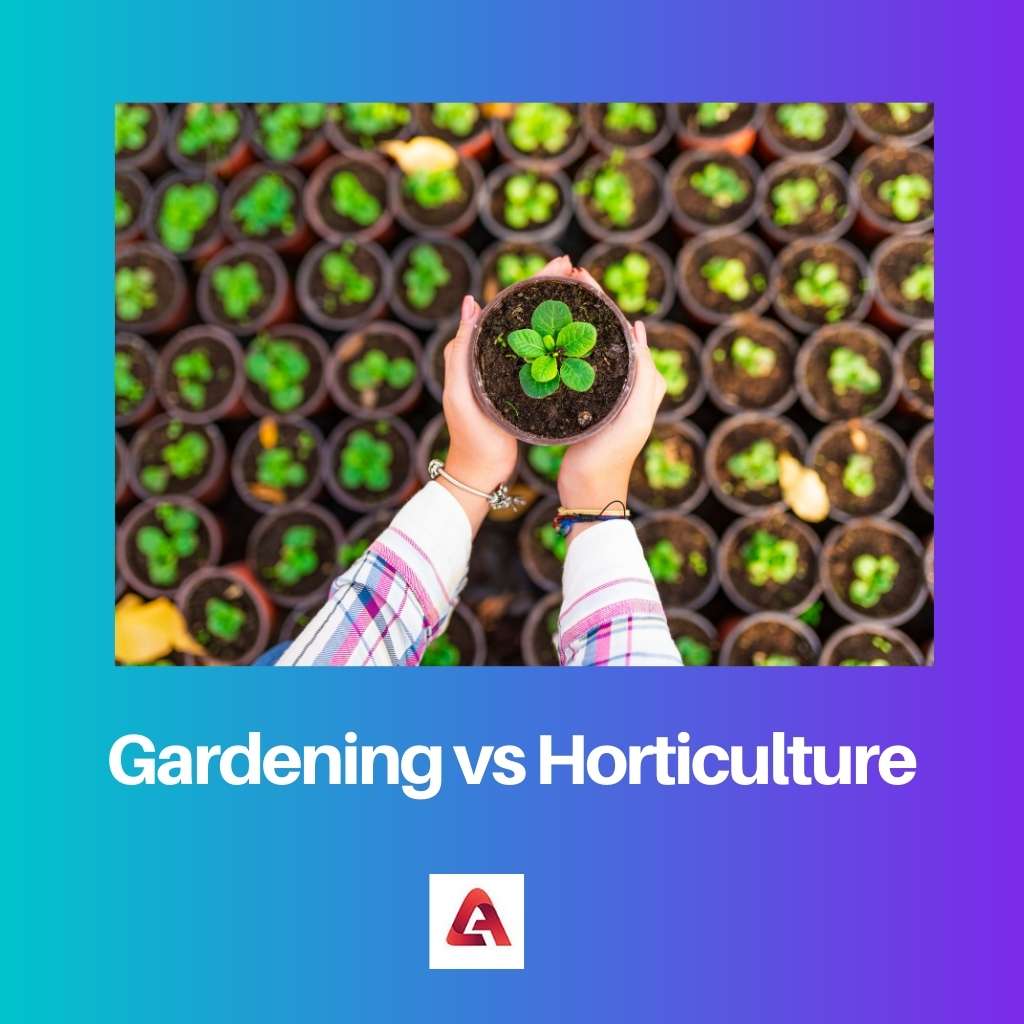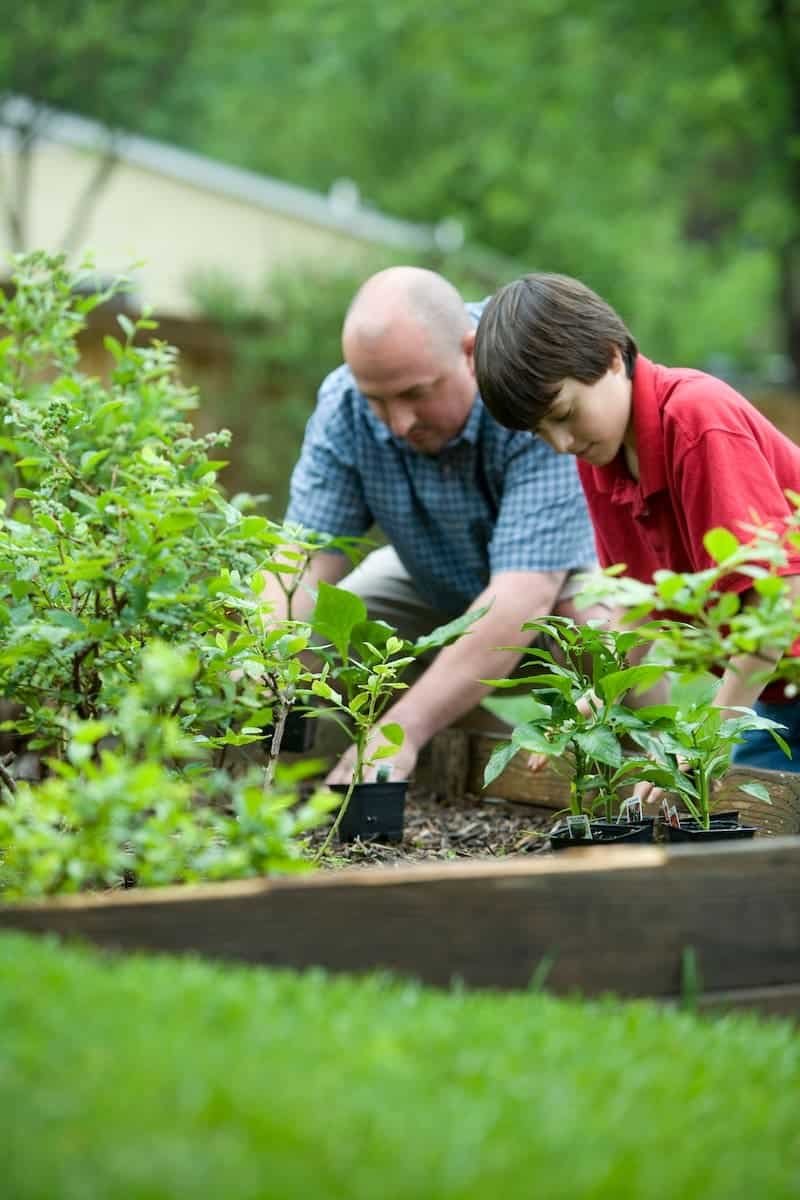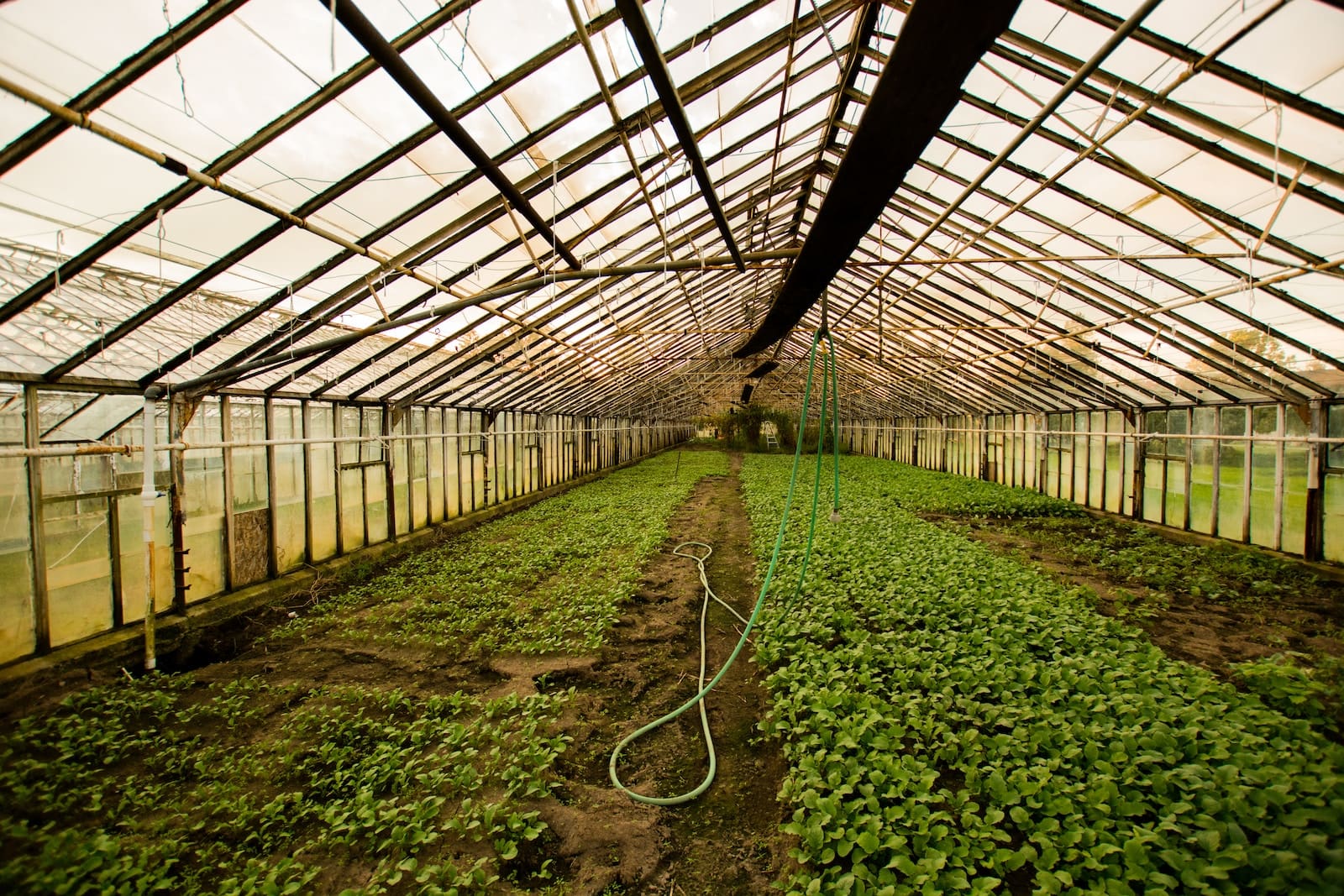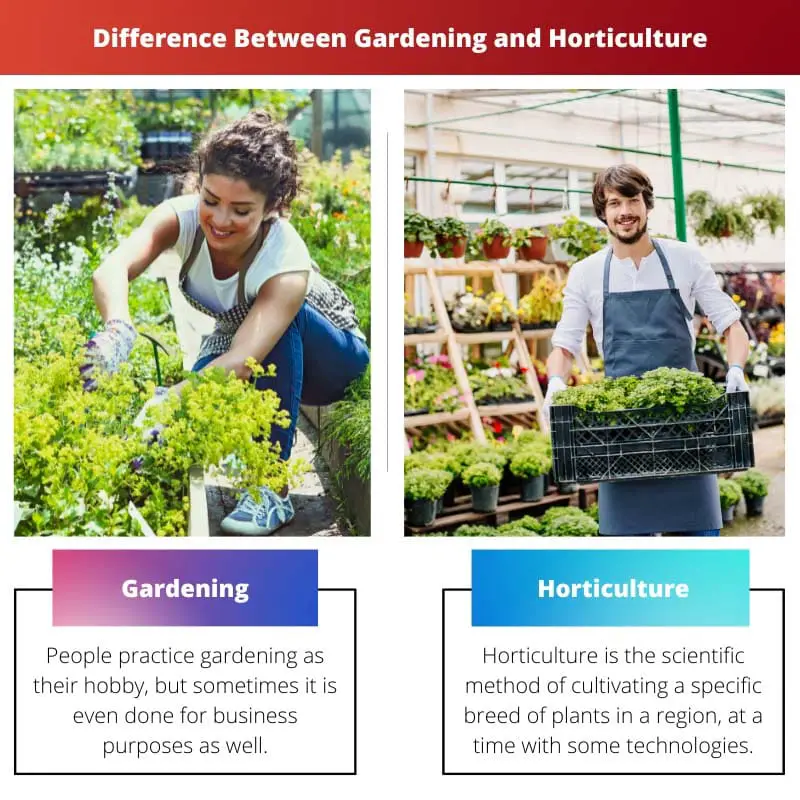Gardening and Horticulture are to inter-related terms, and we can term that gardening is a part of Horticulture. We all love flowers, vegetables, fruits, and in short plants as a whole.
Therefore, gardening and Horticulture are two methods wherein we can professionally or non-professionally connect to it. There is varied difference between both the fields and here we have discussed everything in detail.
Key Takeaways
- Gardening involves cultivating and maintaining plants for aesthetic and practical purposes, while horticulture is the science and practice of growing plants for food, ornamental, and environmental purposes.
- Horticulture encompasses a broader scope of activities, including breeding, production, and marketing, whereas gardening primarily focuses on plant care and maintenance.
- Horticulture professionals require formal education and training, whereas anyone interested in plants can practice gardening.
Gardening vs Horticulture
Gardening is a method that is widely done with a motive of hobby or rarely as a profession. Horticulture is practised with the motive of commercialization wherein people cultivate and sell the plants in the market.

We all are familiar with the term gardening, and in some way or the other, almost every person is a gardener. Even if it is done in a compact region or a wider region, gardening is loved by everyone and is a popular hobby of many as well.
Generally, it requires a lesser area but depends upon an individual and their requirements.
On the other hand, Horticulture is a scientific method used for cultivating plants. And, in Horticulture, only a specific type of plant or breed is cultivated at a time.
It is a process and requires to be followed in steps. Generally, Horticulture is done for commercial business.
Comparison Table
| Parameters of Comparison | Gardening | Horticulture |
|---|---|---|
| Type of Act | We can term gardening as an act of hobby. | Horticulture is accomplished with a motive of commercial business. |
| Area Required | Gardening is done on a smaller-scale and therefore, it requires minimal area. | A larger area is asked to be assigned for Horticulture since it is done on a larger scale. |
| Specialist | The person who looks after the plants and has great knowledge about gardening is known to be a plantsman or gardener. | Horticulturists is the name used for the specialist of Horticulture. |
| Discipline | Gardening falls under two categories which are art as well science. | We can consider Horticulture as applied science. |
| Jobs | Gardening can lead to jobs like organic farming, plant pathology, horticultural therapist, etc. | The experts of Horticulture can choose the professions such as gardener, foreman, scientist, professor, etc. |
What is Gardening?
Gardening is simply defined as the growing of plants. People practice gardening as their hobby, but sometimes it is even done for business purposes as well.
We all are aware of the fact that plants give us oxygen to breathe, therefore almost every house has some or other kind of plants. And hence, this is called gardening.
We love to see greenery, even if we stay in a compact apartment. The best hobby people choose is gardening.
At any age, as in old people as well as a child can practice gardening.
Gardening has been subdivided into three types they are Hydroponics Gardening, Vertical Wall Gardening, and Container Gardening. Hydronics Gardening is a traditional technique of growing plants without the help of soil.
In Vertical Wall Gardening the plants are grown vertically with the support of walls, it can be done both indoors as well as outdoors. Container Gardening is done in small or big containers, this kind of gardening is best suited for places that do not have much space.
A few advantages that can be noticed while practicing gardening are it reduces carbon footprint, helps in reducing stress levels, increases the production of oxygen, keeps the gardener active and happy. In gardening, basic everyday flowers, fruits, medicinal plants, etc are seen growing.

What is Horticulture?
Horticulture is the scientific method of cultivating a specific breed of plants in a region, at a time with some technologies. Generally, it requires a larger area to cultivate as the cultivators grow a larger quantity of plants at a time.
The crops like fruits, vegetables, aromatic, medicinal, and ornamental plants are grown using the technique of Horticulture. It mainly focuses to sell the end product in the market.
Therefore, uncommon or important plants are grown.
Horticulture is a process that benefits like it produce high and good quality yields, strengthens the cropped plants, scientifically protects the plants, etc. And it causes some disadvantages as well selection of the correct seeds for the process, lack of proper knowledge, lack of space, might be expensive for some people.
These are some side-effects of the thought of Horticulture.
Horticulture mainly has three branches namely Promology, Ornamental Horticulture, and Olericulture. The person behind such study or in other words the specialist is known as Horticulturists.
And a few job carriers for such fields are Professors, Scientists, Foreman, Assistant Manager Human Resources, etc. If one wants to study Horticulture they can pursue it as it has many job opportunities.

Main Differences Between Gardening and Horticulture
- Generally, gardening is chosen as a hobby while on the other hand, for commercial businesses people practice Horticulture.
- A compact region is sufficient for gardening while on the other hand, a wider range of area is a must for Horticultural activities.
- The names given to a gardening expert are plantsman and gardener while on the other hand, the people who are engaged in Horticulture are known to be Horticulturist.
- Both art and science are the major disciples of gardening while on the other hand, Horticulture is purely an applied science.
- One can choose jobs like organic farming, plant pathology, horticultural therapist, etc by gardening while on the other hand, gardener, foreman, scientist, professor, etc are the job branches available after mastering Horticulture.





